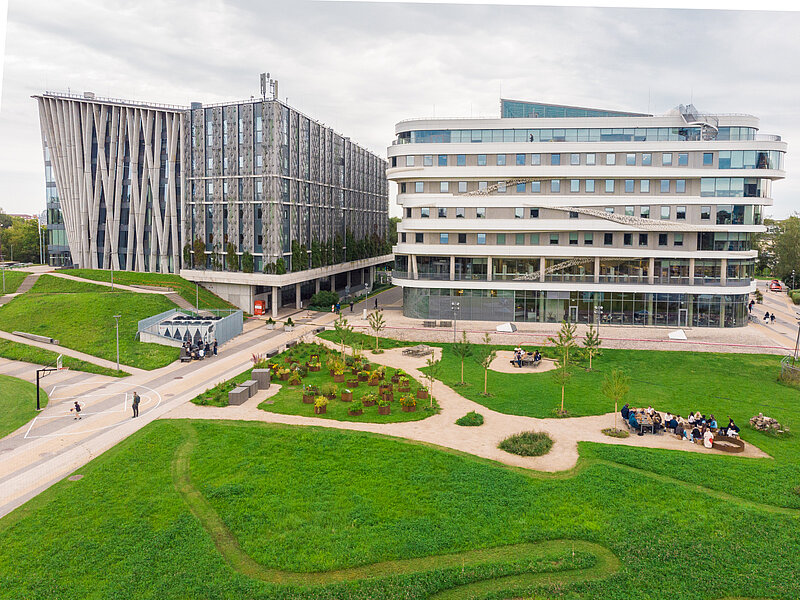
The University of Latvia (UL) has made significant progress in the QS World University Rankings: Sustainability 2026, showing growth in eight out of 11 assessment indicators. According to the published results, UL ranks 553rd in the world out of 2001 universities, 235th in Europe out of 620 universities, and retains the 1st place in Latvia among the higher education institutions of the country included in QS Rankings.
The University’s comprehensive approach to sustainability, which integrates academic excellence with social responsibility and environmental protection, is endorsed by the compelling performance of UL in all dimensions of the ranking – social impact, environmental impact and governance. Once again, this year, UL is the highest-rated higher education institution in Latvia.
The University’s activities in the field of environmental sustainability received a particularly high assessment, as did the impact of environmental education, which confirms the University’s significant contribution to providing high-quality education that promotes the development of society.
Likewise, UL stands out for its inclusive and healthy academic environment, while actively sharing knowledge and best practices with society and international partners: social impact measures such as equality, knowledge exchange, educational impact, health, and quality of life have received a high appraisal.
Renārs Kairis, Head of Sustainable Development at UL, emphasizes: “These results confirm the purposeful work invested by the University of Latvia in all areas of sustainability – it encompasses promoting the well-being of people and society, strengthening the culture of responsible governance, as well as the sustainable use of resources. We consider progress in eight out of 11 indicators as proof that changes are being implemented consistently and systematically, based on international quality standards.”
Kairis adds that this progress is not a coincidence, but a joint contribution of the entire University community – academic and general staff, students, administration, institutions, the effort of the extensive UL collective – based on long-term strategic planning. The University will continue to foster its competencies, identify and address challenges in a timely manner, in order to advance its position in the field of sustainable development. “Sustainability is not a single destination – it is a continuous systemic implementation of change,” he comments.
The QS World University Rankings: Sustainability is one of the leading international assessments of higher education institutions, measuring the contribution of universities to achieving the Sustainable Development Goals, assessing social, environmental and governance aspects. More information about the rankings and the results thereof is available on their website.

 CONFERENCE
CONFERENCE